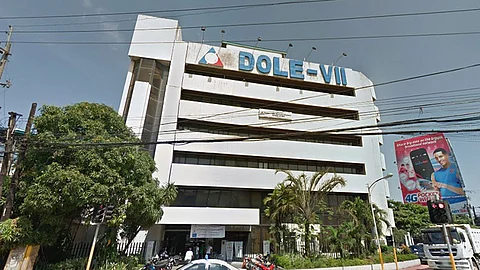

TO ENSURE workers’ safety, especially amid the escalating threat of high temperatures, the Department of Labor and Employment in Central Visayas (Dole 7) will conduct inspections to enforce the occupational safety and health protocols outlined in Department Order (DO) 198 and impose penalties on violators.
Dole 7 Director Lilia Estillore, in an interview on Wednesday, April 24, 2024, said they are reminding employers through online lectures and physical training sessions on how to address intense heat in the workplace, which can impact employee efficiency.
The DO 198, which contains the implementing rules and regulations of Republic Act 11058 or “An Act Strengthening Compliance with Occupational, Safety and Healthy (OSH) Standards,” applies to “all establishments, projects sites and all other places where work is being undertaken in all branches of economic activity.”
Under the OSH standards, employers should provide a safe and healthy workplace by using devices or equipment with approved industry standards and provide appropriate personal protective equipment free of charge, among others.
All establishments, projects, sites and all other workplaces should also have free welfare activities, ensuring an adequate supply of safe drinking water, adequate sanitary and washing facilities, and suitable living accommodation for workers, as may be applicable like in construction, shipping, fishing and night workers, and separate sanitary, washing and sleeping facilities for all gender as may be applicable, among others.
Estillore emphasized the imposition of significant penalties to ensure employer compliance with standard safety and health measures.
“We are not after the penalty. What will we do with the money collected when many workers have died and many others have become ill?” she said.
She added that employers have 20 days to rectify any deficiencies discovered during the inspection. Failure to comply within this period would escalate the matter into a case.
Failure to address the case would prompt the issuance of an order with penalties.
Penalties
Estillore said employers face penalties of P40,000 per day for lacking a safety program, an additional P40,000 per day for not having a safety officer, and P20,000 per day for failing to conduct proper safety training.
The agency said their initiatives align with the agency’s observance of World Safety Day on Sunday, April 28, which this year emphasizes ensuring workers’ safety and health amid climate change.
“The schools shifted (to) online (classes) due to the heat inside the classrooms, opting for modules instead. This ensures safety and health not just for students but also for teachers and, of course, those in other jobs, if applicable, should follow,” she said.
Estillore said that among the proactive steps that they would encourage the employers to follow is to modify the uniforms of their employees, particularly those that might be uncomfortable to wear amid the high heat index figures.
The heat index considers both temperature and humidity, reflecting how hot it feels to the human body.
The Philippine Atmospheric, Geophysical and Astronomical Services Administration (Pagasa) reported that Cebu experienced a record-high heat index of 39 degrees Celsius for three consecutive days starting from Monday, April 22.
Jhomer Eclarino, a weather specialist from Visayas Pagasa Regional Services Division, categorized this figure as extreme caution, indicating potential heat cramps, exhaustion, and even heat stroke from prolonged outdoor activities.
Eclarino predicts further increases in the heat index and surface temperature as May approaches, traditionally the hottest month in Cebu.
Meanwhile, Estillore also urged employers to adhere to the policies outlined in Labor Advisory 8, series of 2023, which instructs employers to assess health risks from extreme heat and implement appropriate measures to mitigate them.
Last April 8, a national media outlet reported that Labor Secretary Bienvenido Laguesma advocated for a flexible work arrangement to protect workers’ health from heat-related illnesses.
“Employers and employees could agree on a flexible work arrangement until such time that the weather condition has improved while maintaining the total number of work hours,” Laguesma said.
He also encouraged employers to offer drinking water near workstations and guarantee efficient ventilation and heat insulation in all work areas to counteract heat and humidity. / KJF, WBS